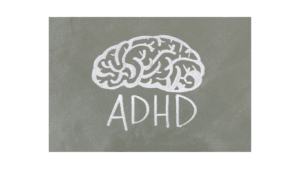Debunking Misconceptions with Faith and Clinical Wisdom
When conversations about mental health and spiritual warfare collide, confusion and stigma often follow. Some believe every mental health struggle is demonic. Others swing the opposite direction and deny any spiritual dimension to suffering. Both extremes can leave people feeling unseen, misunderstood, or even shamed.
As counselors and believers, we need to hold these realities together. Mental health struggles are real, and spiritual warfare is real. The question is not either/or—it’s how do they intersect, and how do we respond with wisdom and compassion?
Let’s debunk five common myths and replace them with truth.
Myth 1: “All mental illness is caused by demons.”
This myth oversimplifies and stigmatizes. Mental illness can arise from genetics, trauma, neurochemistry, chronic stress, or medical conditions. Elijah’s despair in 1 Kings 19 was not described as demonic—it was exhaustion, grief, and hopelessness.
The Truth: Mental illness is part of living in a fallen world. Sometimes it is biological, sometimes situational, sometimes spiritual—but often, it’s a mixture of all three. To reduce it only to demons ignores the complexity of the human mind and body that God designed.
Myth 2: “If you pray hard enough, depression or anxiety will disappear.”
Prayer is powerful. God invites us to bring every worry and fear to Him. But prayer is not a magic formula that instantly removes all mental health struggles. Even Paul prayed three times for his “thorn in the flesh” to be taken away, and God’s answer was “My grace is sufficient for you” (2 Cor. 12:9).
The Truth: Prayer brings strength, peace, and God’s presence in suffering. But God often works through multiple avenues—therapy, medication, supportive community—in addition to prayer. Telling someone to “just pray more” heaps shame instead of offering support.
Myth 3: “Taking medication means you don’t have enough faith.”
This myth has discouraged countless believers from seeking help. No one would tell a diabetic to avoid insulin out of “lack of faith.” In the same way, medication for depression, anxiety, or bipolar disorder can be a God-given tool to stabilize brain chemistry so people can engage in healing.
The Truth: Medication is not faithless—it can be faith-filled stewardship of the body. Using available treatments does not mean a person isn’t trusting God; it means they are using the resources He has provided.
Myth 4: “Spiritual warfare is rare and dramatic.”
When people think of spiritual warfare, they often picture dramatic exorcisms or extreme stories. In reality, warfare often looks like the ordinary daily lies we believe: “You’re unlovable,” “There’s no hope,” “God has abandoned you.” These lies infiltrate everyday thought patterns, relationships, and behaviors.
The Truth: Spiritual warfare is an everyday reality because we live in a fallen world. It shows up in subtle ways—discouragement, division, temptation, despair—not just dramatic encounters. The armor of God (Eph. 6) equips believers for daily resilience, not just rare battles.
Myth 5: “Counselors shouldn’t talk about faith.”
Some clinicians fear that integrating faith means crossing ethical lines, while some Christians worry that counseling might water down biblical truth. In reality, both counseling and faith care about the whole person—body, mind, and spirit.
The Truth: Counselors can ethically explore a client’s faith framework when the client brings it up. For believers, integrating Scripture and prayer with evidence-based counseling can be deeply healing. For non-believers, counselors can still reflect Christ through compassion, truth, and presence. Faith and counseling are not competitors—they are partners.
Why These Myths Matter
When myths go unchallenged, people suffer.
- Believers may avoid help because they fear judgment.
- Families may misinterpret symptoms and delay treatment.
- Churches may unknowingly perpetuate shame by offering only spiritual answers to complex struggles.
As counselors, pastors, and family members, we have the opportunity to replace myths with truth, bringing both clinical wisdom and biblical hope.
Living in Truth
Here’s the good news: God’s Word and good clinical practice are not at odds.
- Where the enemy sows lies, Scripture speaks truth.
- Where the mind falters, God provides both healing through His Spirit and tools through science.
- Where stigma isolates, Christ and community bring compassion.
Spiritual warfare and mental health are both realities of living in a fallen world. But neither despair nor confusion has the last word. God’s truth, spoken in love and applied with wisdom, equips us to walk with people toward healing.
Final Encouragement
If you’re struggling with mental health, you are not “less Christian” or “possessed.” You are human—and God cares for you deeply. Seeking help is not weakness; it is courage.
And if you are a counselor, pastor, or family member walking with someone in crisis, remember this: your presence, your prayers, and your advocacy are acts of spiritual warfare. Every time you replace stigma with compassion, every time you speak truth instead of myth, you are helping push back the darkness.
✨ At North Pointe Services, we believe that mental health care and spiritual truth work together. If you or someone you love is struggling, we’re here with faith-fueled counseling and clinical support. You don’t have to walk the battle alone.








